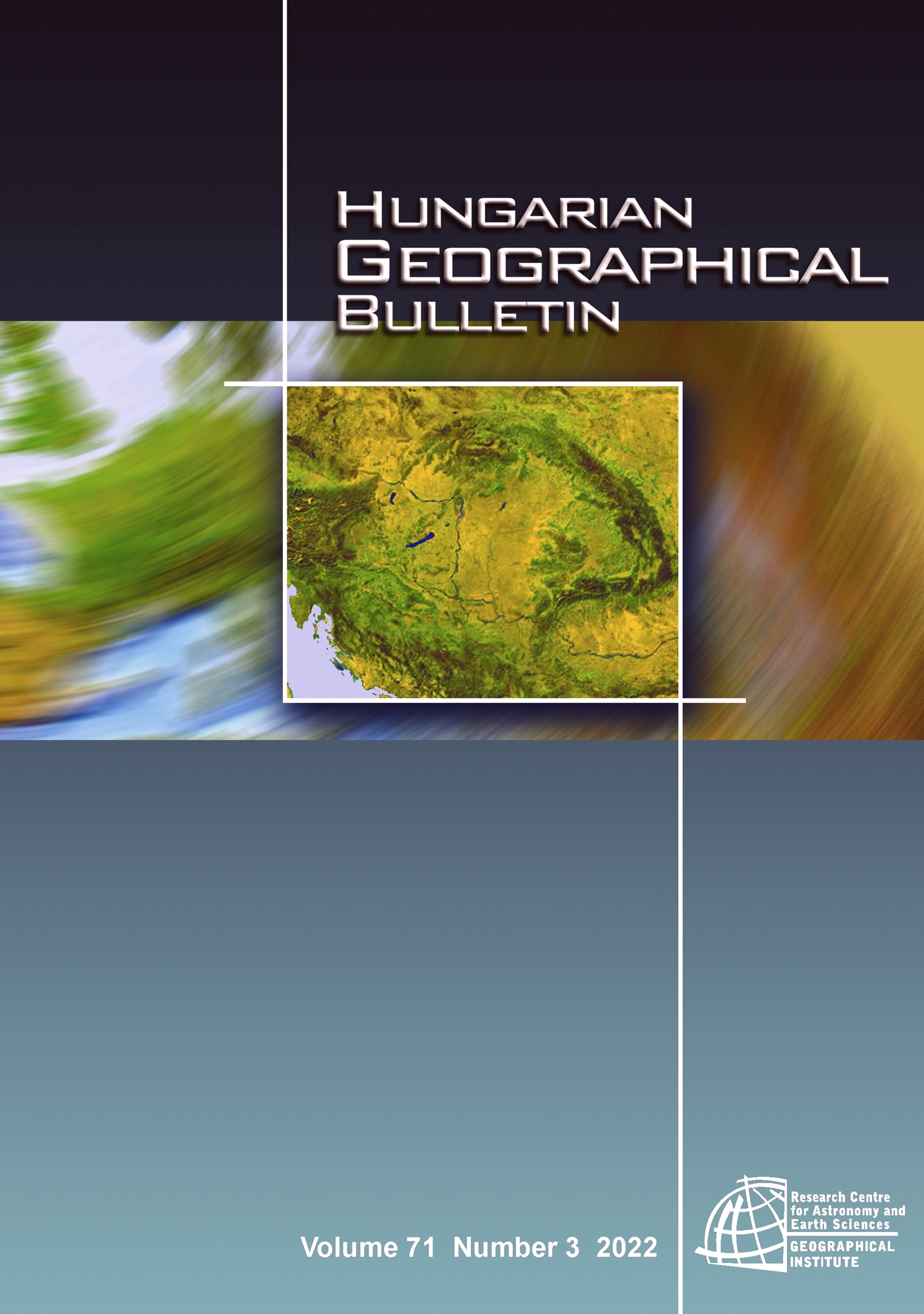Kern, L.: Feminist City: Claiming Space in a Man-made World
Abstract
-
References
Grzebalska, W. and Pető, A. 2018. The gendered modus operandi of the illiberal transformation in Hungary and Poland. Women's Studies International Forum 68. (3): 164-172. https://doi.org/10.1016/j.wsif.2017.12.001
Longhurst, R. 1994. The geography closest in - the body… the politics of pregnability. Australian Geographical Studies 32. (2): 214-223. https://doi.org/10.1111/j.1467-8470.1994.tb00672.x
Sági, M. 2018. Test és tér: Patriarchális viszonyok újratermelése városi köztereken (Body and space: Reproduction of patriarchal relations in urban public spaces). In Kortárs térelméletek kelet-közép-európai kontextusban. Ed.: Faragó, L., Budapest, Dialóg Campus, 205-218.
Sági, M. 2022. The geographical scales of fear: spatiality of emotions, emotional spatialities. Hungarian Geographical Bulletin 71. (1): 55-65. https://doi.org/10.15201/hungeobull.71.1.4
Timár, J. 1993. A nők tanulmányozása a földrajzban, avagy: van-e létjogosultsága a feminista geográfiának Magyarországon? (Studying women in geography, or: does feminist geography have grounds in Hungary?). Tér és Társadalom 7. (1-2): 1-18. https://doi.org/10.17649/TET.7.1-2.267
Timár, J. 2018. A feminista és a marxista földrajz kapcsolata: összekötő és elválasztó diskurzusok a térről (Connection of feminist and marxist geography: connecting and dividing discourses about the space). In Kortárs térelméletek kelet-közép-európai kontextusban. Ed.: Faragó, L., Budapest, Dialóg Campus, 187-203.
Timár, J. 2019. Hungarian feminist geography in a curved space? Gender, Place and Culture 26. (7-9): 1094-1102. https://doi.org/10.1080/0966369X.2019.1635998
Wilson, E. 1995. The rhetoric of urban space. New Left Review 209. 146-160.
Wunker, E. 2016. Notes from a Feminist Killjoy: Essays on Everyday Life. Toronto, BookThug.
Copyright (c) 2022 Mirjam Sági

This work is licensed under a Creative Commons Attribution-NonCommercial-NoDerivatives 4.0 International License.






